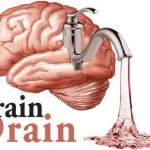 Knowledge sits at the heart of our modern economy, so the thought of large chunks of our intellectual capital walking out of the door should be enough to alarm any manager. It’s estimated that nearly 40% of the working population is over 45, and whilst these baby boomers have contributed tremendously to both the economy and their employers, the risk posed by the loss of their knowledge from the workplace is considerable.
Knowledge sits at the heart of our modern economy, so the thought of large chunks of our intellectual capital walking out of the door should be enough to alarm any manager. It’s estimated that nearly 40% of the working population is over 45, and whilst these baby boomers have contributed tremendously to both the economy and their employers, the risk posed by the loss of their knowledge from the workplace is considerable.
A survey by the Associated Press recently suggested a slight reprieve is at hand. It suggested that 82% of Americans over 50 would continue working past retirement age in some shape or form. What’s more, 47% of respondents expected to retire later than previously thought, with an expected retirement age of 66.
It provides an opportunity to get your knowledge transfer processes into order. One growing trend is to ensure that those that do retire remain available to support and mentor employees. I wrote recently about the YourEncore social network founded back in 2003 after Proctor & Gamble and Eli Lilly wanted to find a better way of tapping into the expertise of retired employees.
Whilst that is a strong concept, it is also imperative that you look to capture the knowledge and expertise of employees before they retire.
Here is a simple four step process to getting your knowledge transfer process up and running.
1. Understand where you are – Take an audit of your people, including their age, how close they are to retirement, what skills they have, how valuable those skills are and the risk to the company should they vanish.
2. Manage your talent – Ensure that you have the right culture and environment to attract the right talent across the age span. Understand the different demands of the generations in order to attract talented youngsters, whilst also doing what you can to ensure key skills amongst your older employees are kept for as long as possible.
3. Manage your knowledge – To ensure you’re not stung by retiring knowledge you need to ensure you have a good corporate memory. Knowledge comes in two kinds – explicit (documents etc.) and tacit (informal heuristics). You need to ensure you capture both.
4. Manage professional development – Make sure you have the training and mentoring processes in place so that retirements don’t catch you by surprise. That way you’ll have great succession plans in place.